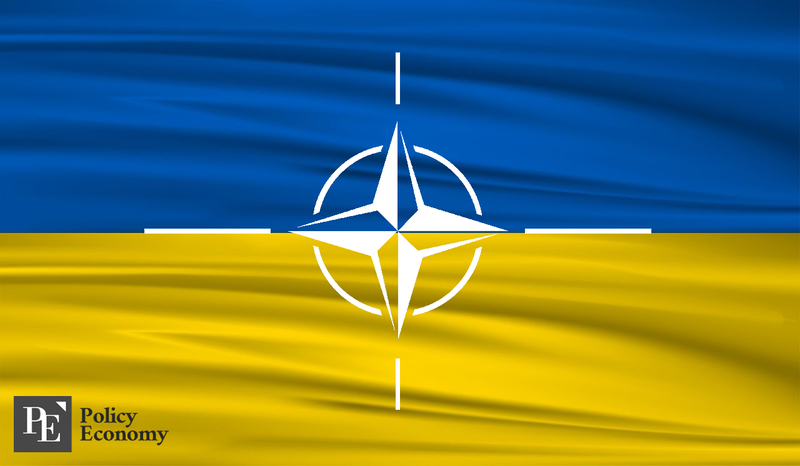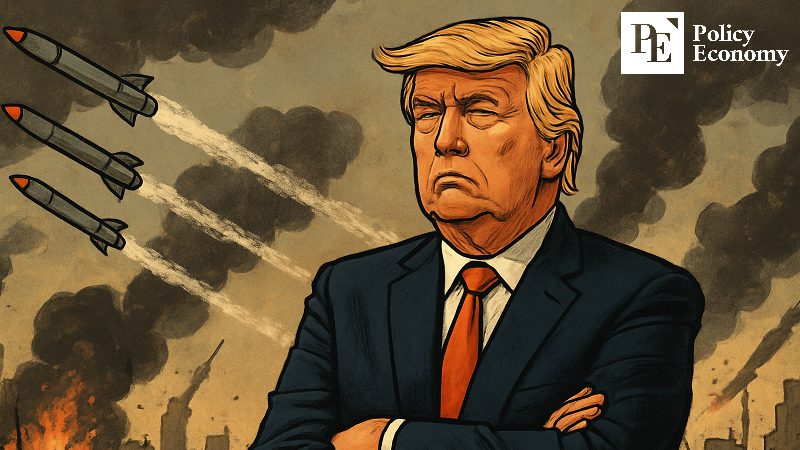Zelensky Proposes Large-Scale U.S. Arms Purchases Financed by European Funds as Condition for Security Guarantees
Input
Modified
Pre-Summit Consultations with European Allies Ahead of U.S.-Ukraine Talks Kyiv Also Pursuing Drone Production Pact with Washington Leveraging Battlefield Experience NATO European Members Expand Security Assistance for Ukraine

Ukraine has proposed a plan to the United States to secure postwar security guarantees by financing large-scale purchases of American weaponry with European funds. While the specific list of armaments has not been disclosed, the U.S.-made Patriot air defense missile system—long demanded by Kyiv—is widely seen as a likely candidate. However, European allies footing the bill have expressed frustration over bearing a disproportionate security burden, urging Washington to shoulder greater responsibility.
“Peace Cannot Be Achieved Through Concessions to Putin”
On the 19th (local time), the Financial Times reported that Ukraine had proposed a $100 billion package of American weapons, to be financed by European resources, in exchange for securing long-term U.S. security guarantees. Kyiv circulated the draft framework to European partners in advance and presented it as a central agenda item during President Volodymyr Zelensky’s meeting with U.S. President Donald Trump at the White House on the 18th.
Experts suggest the proposal was crafted as a countermeasure after concerns emerged that President Trump, during his prior summit with Russian President Vladimir Putin, had shown signs of accommodating Moscow’s position. The document emphasized that “enduring peace cannot be achieved by granting concessions or free gifts to President Putin, but must rest on a robust security architecture that deters future aggression.”
The framework did not specify which weapons would be included. Yet Zelensky has consistently expressed interest in acquiring U.S.-made Patriot air defense systems. Designed to intercept incoming missiles, the Patriot system is a cutting-edge platform capable of neutralizing ballistic and cruise missiles as well as high-speed aircraft, with an effective interception range of 70–80 kilometers per battery.
Separately, Ukraine is pursuing a $50 billion joint drone production agreement with the United States. Under the proposed scheme, Ukraine would provide operational expertise and battlefield-tested know-how, while the U.S. would contribute capital, manufacturing, and technology. Drones have become central to Ukraine’s military strategy, with local firms—hardened by battlefield experience—slated to participate. Details on procurement ratios and financing terms, however, remain undisclosed.

Europe Shouldering the Bulk of U.S. Arms Procurement Costs
A key feature of the arrangement is that European allies will bear a substantial portion of the cost of acquiring U.S. weapons for Ukraine. NATO recently announced the creation of a $10 billion fund dedicated to purchasing American-made or U.S.-supplied weaponry, with allocations determined by balancing Ukrainian battlefield requirements with U.S. strategic priorities. General Alexis Greenkiewicz, NATO’s Supreme Allied Commander Europe, will oversee assessments of Ukraine’s procurement needs.
In parallel, NATO and European member states have already launched the “Priority Ukraine Requirements List (PURL)” project, under which allies collectively purchase U.S. weapons based on Kyiv’s needs, with Washington delivering them directly to Ukraine. Denmark and the Netherlands are among the most active participants. The Netherlands has pledged a $500 million package of U.S. weapons, including Patriot missile components and interceptors, while Denmark has committed $90 million in support.
Several European allies are also procuring American weaponry independently to bolster Ukraine. Germany, in particular, has advanced plans to expand air defense support through Patriot systems. Berlin recently agreed with the Trump administration to deploy two additional Patriot batteries, enabling Germany to transfer its existing two systems to Ukraine. Washington has pledged to prioritize supplying next-generation Patriot systems to countries that send their current batteries to Ukraine.
Criticism Mounts: “Europe Cannot Be Left Carrying the Burden Alone”
The growing reliance on European financing to sustain Ukraine’s security has sparked criticism. At a press conference following the EU Foreign Affairs Council in Brussels on the 15th, EU High Representative for Foreign Affairs and Security Policy Kaja Kallas welcomed President Trump’s pledge of more weapons for Ukraine but stressed: “Our request is that all nations contribute equally. We want to see shared responsibility not only from Europe, but also from the United States.”
Asked to elaborate, Kallas underscored Europe’s structural limitations, noting: “Since World War II, under a disarmament and pacifist ethos, Europe’s weapons production infrastructure has been scaled back, and we cannot rapidly expand output. Yet we are doing everything possible to support Ukraine.” Aiming her remarks at Trump, she added: “If Europe pays for the procurement of U.S. weapons, that is European support. If you promise weapons but someone else foots the bill, you cannot claim the credit.”
The numbers bear this out. According to the Kiel Institute for the World Economy, between January 2022 and April this year, U.S. assistance to Ukraine totaled $114.6 billion, while Europe provided $156.1 billion—significantly more. American support stood at $26.8 billion in the final quarter of former President Joe Biden’s term but plummeted to just $500 million in the first quarter of President Trump’s administration. In contrast, Europe’s contributions rose from $9.5 billion in last year’s fourth quarter to $19.1 billion in the first quarter of this year.





















